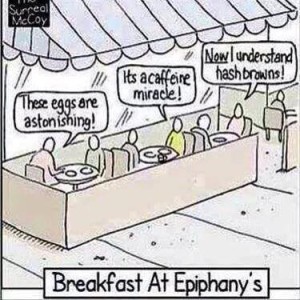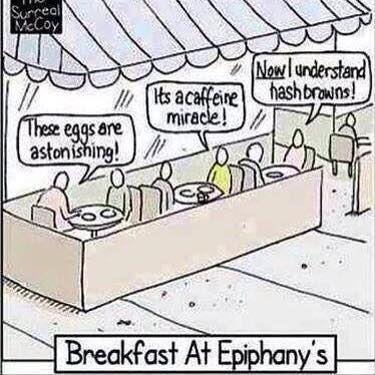“Living Invitations”
A Sermon for Pilgrim United Church of Christ, Durham NC
John 1:43-51
January 18, 2015
When I was a kid I thought Jesus was magic.
I’m not talking about the miracles. Somehow those made sense in their own way. The Messiah ought to be able to do miracles. I mean the super hero stuff in the scenes like the one in the account we read this morning where Jesus walked up and said, “Follow me,” and people just dropped what they were doing and walked off into the gospel. There’s another scene where, as he was preparing to enter Jerusalem, Jesus tells his disciples they would see a man with a donkey. He told them to say, “The Master has need of it,” and the guy would give them the animal. I was convinced it was some sort of messianic mind control. The disciples found the guy and said the words and then magically, robotically, the man went to the barn and got the beast, all the time muttering, “Master needs donkey, master needs donkey.”
I was talking to my dad about it one day, explaining my theory, and he said, “I always figured that Jesus just knew the people beforehand.”
Though he took away my magic messiah, what he offered in return proved far better for my burgeoning faith. Our conversation was the beginning of my seeing how few details there are in the gospel accounts and how much is left out: whole conversations happen in a sentence or two; sweeping changes come with the turn of a phrase. So it is with our story this morning. Even John, who can stretch out a story—half of his gospel takes place in the last week of Jesus’s life—moves quickly through Jesus’ calling of his disciples. Jesus finds Philip in Galilee and says, “Follow me,” and the next thing you know Philip is gathering up several others.
My favorite part of this account begins with Nathaniel’s skepticism. He asks, “Can anything good come out of Nazareth?” Philip echoes Jesus’s earlier words and says, “Come and see.” When Jesus sees Nathaniel, he says, “Here is truly an Israelite in whom there is no deceit!” and Nathaniel says, “Where did you get to know me?” as if to say, “Finally—somebody gets me!”
We come to this story in the middle of the short liturgical season of Epiphany. Unlike Advent, we don’t count these Sundays down to a big finish. We have no candles to light. Unlike Lent, we have no big theme or focus, no call to repentance or silence. Epiphany is the in-between time, the path of days from Advent and Lent, that mostly feels cold and ordinary. No magic. I’ve often wondered how the word itself became attached to the coming of the Magi, because I’ve never really understood what an epiphany—in the way I learned the word as a sort of “aha!” moment—had to do with a few people with odd gifts showing up late to the party. The church history answer is the coming of the Magi represented the “manifestation of Jesus to the Gentiles.”
One of the dictionary definitions for epiphany is “a sudden, intuitive perception of or insight into the reality or essential meaning of something, usually initiated by some simple, homely, or commonplace occurrence or experience.” The ordinary nature of Jesus’s interactions in our story this morning offers another answer. As Michael Rogness points out, “This text tells how it works: the Christian faith is passed from person to person. That’s how it started with Jesus, and that’s how it’s been for two thousand-plus years.” Our faith is shared most powerfully in the common occurrences of our daily interactions with one another.
I came across a cartoon last week titled, “Breakfast at Epiphany’s.” The line drawing showed people saying things like, “These eggs are amazing,” “It’s a caffeine miracle,” and “I finally understand hash browns!” A sudden perception of essential meaning from a common place experience. Dr. King talked people into walking and sitting down at lunch counters and boycotting buses to awaken us to the reality of racial injustice and to call us to come and see what we could do. Our world has been changed far less by grand gestures or sweeping decrees coming from the top down, and much more by one friend turing to another and saying, “Come and see what I have found;” by one person turning to another and saying, “Come and share what I have;” or “Come, let’s walk together.” As evidenced in the Incarnation, love is not an ideal or a proposition; Love has hands and feet. The revelation of Love is in the flesh. No magic. Just people—how did the dictionary say it?—simple, homely, or commonplace folks changing the world. Maybe homely goes a bit too far, but you get the idea. We find our way to Jesus—to love and to faith—through one another.
saying things like, “These eggs are amazing,” “It’s a caffeine miracle,” and “I finally understand hash browns!” A sudden perception of essential meaning from a common place experience. Dr. King talked people into walking and sitting down at lunch counters and boycotting buses to awaken us to the reality of racial injustice and to call us to come and see what we could do. Our world has been changed far less by grand gestures or sweeping decrees coming from the top down, and much more by one friend turing to another and saying, “Come and see what I have found;” by one person turning to another and saying, “Come and share what I have;” or “Come, let’s walk together.” As evidenced in the Incarnation, love is not an ideal or a proposition; Love has hands and feet. The revelation of Love is in the flesh. No magic. Just people—how did the dictionary say it?—simple, homely, or commonplace folks changing the world. Maybe homely goes a bit too far, but you get the idea. We find our way to Jesus—to love and to faith—through one another.
And it is through one another that we find our way to hope and joy as well. We live in days where we are offered examples of religious extremism and fundamentalism from those who attacked the cartoonists in Paris to those who reigned down on Duke this week for saying they would broadcast the Muslim call to prayer once a week. When all we are doing is shouting “No” in the name of whatever faith we profess, we are doing damage. Again, look at Dr. King and those with whom he worked. They were saying no to the injustice they saw, but that was not their primary source of hope. Martin found hope in saying yes to justice, yes to relationship, yes to love, yes to faith, even yes to joy. They marched on Washington singing, “Yes”—we shall overcome. Our call to follow Jesus is a call to be living invitations, whether marching for justice or walking down the halls here in our building.
As living invitations, may we be mindful we are not inviting people to be right or proper or correct. We are inviting people into relationship—with us, with Christ. We are inviting people to hope and faith and joy. We are inviting people to the messy work of community, to living out the commitment of life together on all the levels we can see. We are inviting one another to courage, to persistance, to compassion, to patience. We are inviting people to remember we are all wonderfully and uniquely created in the image of God and worthy to be loved. We are inviting people to the wonder of God that lives in the commonplace experiences of life together in Christ. May we be living invitations in all we do and say. Amen.
Peace,
Milton

Thank you… to one of the truly beautiful invitations in my life.
Nicely done, sir!
Such a welcome message. Thank you.
Milton, You probably don’t remember me but we met in Houston, through Adrian & Neva Nell, and you came to see our son Chris in the hospital. We now live in TN and I’ve talked and emailed with your mom a few times since then. However, I have lost all my email addresses (when my computer died). I have tried to find her, via phone directory, and they say they have no one with that name. Just now found out about your dad (via internet) and so sorry to hear that. If you could send me your mom’s phone # & email address I would be most appreciative. I also tried to find you (via directory assistance) and they say the same thing….you don’t exist in Durham! Thanking you, Rochelle Imboden (imbodenro@embarqmail.com) P.S. I can’t tell you how upset it makes me that we can’t contact people via White Pages anymore!
Rochelle,
Sorry to be so long in replying. I have not been a good steward of the blog in these days. I remembered you as soon as I saw your name. I remember those days with Chris. They are a sacred memory. I will be happy to pass your contact information on to my mother.
Peace,
Milton